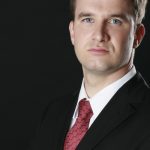Les plaisirs
Secular Cantatas by J. S. Bach and N. Bernier
Artists
-

Lore Binon
Soprano -

Tobias Berndt
Barytone -

Tomáš Lajtkep
tenor -

Collegium Marianum
Baroque Ensemble -

Jana Semerádová
artistic director, flauto traverso -

Lenka Torgersen
concertmaster
Performed by:
Lenka Torgersen, Vojtěch Semerád – baroque violin
Andreas Torgersen – baroque viola
Hana Fleková – baroque violoncello, viola da gamba
Matyáš Berdych – contrabass
Sebeastian Knebeol – harpsichord
Jana Semerádová, Martina Bernášková – flutes
Programme
Christopher Graupner
Entrata per la Musica di Tavola (selection)
Johann Sebastian Bach
Coffee Cantata „Schweigt stille, plaudert nicht“ BWV 211
intermission
Johann Bernhard Bach
Ouverture No. 2 e moll „Le plaisir“
Nicolas Bernier
Cantata „Le Caffé“
Jean-Baptiste Bousset
Air à boire „Amis, ne faisons plus la guerre“
Eglogue Bachique „Permettez-moi de boire / Je vous permets de boire“
Johann Bernhard Bach
„La Joye“ from Ouverture No. 4 D dur
Annotation
TIP
On the day of the concert, ticket holders can visit the Lobkowicz Collections exhibition at the Lobkowicz Palace from 5:30 till 7 pm for the reduced price of 150 CZK. The reduced price includes an audio guide and a printed plan of the museum. This special offer is only available on 5 March 2019 at the Lobkowicz Palace and applies to visitors with a purchaesed ticket for the concert.
Partners of the concert
In cooperation with Lobkowicz Events Management.
Artists

Lore Binon
Soprano
Lore Binon played the violin from the early age of five. A laureate of several competitions, she obtained a master’s degree from the Royal Conservatory of Brussels where she studied with Yuzuku Horigome. Whilst studying the violin, she discovered a new passion for singing and began vocal training with Beatrijs Devos at the same institution. She later studied at the Escola Superior de Música de Catalunya in Barcelona, with Margarida de Natividade and in 2011 she received a master’s degree from the Conservatory of Amsterdam where she studied at the class of Valérie Guillorit. She currently receives coaching from Margreet Honig.
With her versatile and sensitive musicality, Lore is a sought-after soloist. She has maintained regular collaborations with ensembles such as Ictus Ensemble, Oxalys, Flemish Radio Choir, the Brussels Philharmonic, Spectra Ensemble, Freiburger Barockorchester, Flemish Radio Choir and Symfonieorkest Vlaanderen, performing in works such as Haydn’s Die sieben letzte Worten unseres Erlösers, Bach’s Magnificat, Dixit Dominus by Handel, Mendelssohn’s Lobgesang and Brahms’s Ein Deutches Requiem. She has collaborated with conductors such as René Jacobs, Hervé Niquet and Jos van Veldhoven and performed in venues such as Bozar in Brussels, Salle Pleyel in Paris, Opéra de Lyon, De doelen centre in Rotterdam and the Moscow Tchaikovsky Concert Hall.
In the current season Lore Binon sings the role of Pamina in Die Zauberflöte by Mozart at the Flemish Opera. She is artist in residence at the Festival of Flanders in Mechelen and will sing the solo soprano part in Mahler’s Fourth Symfony with the Orchestre Symphonique de Mulhouse under the baton of Loethar Koenigs. In November 2017, a CD with melodies by Debussy, Hahn and others was released by Outhere Music.

Tobias Berndt
Barytone
A native of Berlin, Tobias Berndt began his musical training with the Holy Cross Boys Choir Dresden. He studied with Hermann Christian Polster at the University of Music and Theatre Felix Mendelssohn Bartholdy in Leipzig and with Rudolf Piernay at the Mannheim University of Music and Performing Arts. He has also attended masterclasses and classes by Theo Adam, Wolfram Rieger, Norman Shetler, Irwin Gage, Axel Bauni, Julia Varady and Dietrich Fischer-Dieskau.
He is a recipient of multiple scholarships and a prize winner at the National Song Contest Berlin 2004, the International Art Song Competition by the Hugo-Wolf Academy in Stuttgart 2007, the International Summer Academy of the Mozarteum in Salzburg 2008 and the International Contest “Franz Schubert und die Musik der Moderne” in Graz 2009. His other accolades include the first prizes at the International Johannes-Brahms Contest in Pörtschach 2008, the Cantilena Song Contest in Bayreuth 2009, as well as “Das Lied – International Song Competition” in Berlin (2009).
Among the highlights of his career we are concert performances with the Leipzig Gewandhaus Orchester, The English Concert, L’arpe festante, Thomanerchor Leipzig, Saxony Vocal Ensemble and the MDR Radio Choir. He has sung under renowned conductors such as Peter Schreier, Helmuth Rilling, Howard Arman, Ludwig Güttler, Andreas Spering and the Gewandhaus organist Michael Schönheit, and has been guest at many prestigious international festivals.

Tomáš Lajtkep
tenor
Tomáš Lajtkep holds a Master’s degree in Telecommunications from the Brno University of Technology. While still a student, he started studying voice privately and took part in masterclasses by various specialists in the field of Early Music. He works regularly with ensembles focusing on the Gregorian chant as well as on Renaissance and Baroque repertoire, including Collegium Marianum (dir. Jana Semerádová), Cappella Mariana (dir. Vojtěch Semerád), Collegium Vocale 1704 (dir. Václav Luks), Schola Gregoriana Pragensis (dir. David Eben), Vox Luminis (dir. Lionel Meunier), and Collegium Vocale Gent (dir. Philippe Herreweghe).
Besides his singing career he also plays the trombone in several jazz bands and the sackbut (tenor and bass) with the Capella Ornamentata ensemble, having participated in masterclasses of Franck Poitrineau, Bernhard Rainer, and Adam Woolf.

Collegium Marianum
Baroque Ensemble
Since it was founded in 1997, the Prague ensemble Collegium Marianum has focused on presenting the music of the seventeenth and eighteenth centuries, especially by composers who were born or active in central Europe. One of the few professional ensembles specializing in this field in the Czech Republic, Collegium Marianum not only gives musical performances, but regularly also stages scenic projects.
The ensemble works under the artistic leadership of the traverso player Jana Semerádová who also regularly appears as a soloist with some of the eminent European orchestras. Her active research together with her study of Baroque gesture, declamation and dance, has enabled Semerádová to broaden the profile of the Collegium Marianum ensemble and present multi-genre projects featuring Baroque dance and theater. Her unique, thematic programming has resulted in a number of modern-day premieres of historical music presented each year. The ensemble has collaborated with renowned European conductors, soloists, directors, and choreographers such as Andrew Parrott, Hana Blažíková, Damien Guillon, Peter Kooij, Sergio Azzolini, François Fernandez, Simona Houda-Šaturová, Benjamin Lazar, Jean-Denis Monory, and Gudrun Skamletz.
Collegium Marianum has received critical acclaim both at home and abroad. The ensemble has appeared extensively on the Czech Radio and TV as well as on the radio abroad. It regularly performs at music festivals and on prestigious stages both in the Czech Republic and elsewhere in Europe, including Tage Alter Musik Regensburg, Bachfest Leipzig, Potsdam Festspiele, Mitte Europa, Festival de Sablé, Bolzano Festival, Palau Música Barcelona, Pražské jaro, or Concentus Moraviae.
In 2008 the ensemble started a successful collaboration with the Supraphon label. Within the “Music from Eighteenth-Century Prague” series it has launched eight recordings with music by both well-known and lesser-known composers including J.D. Zelenka, F. Jiránek, J.J.I. Brentner and J.A. Sehling.

Jana Semerádová
artistic director, flauto traverso
One of the most prominent personalities of the international early music scene, flautist Jana Semerádová is a world-class soloist, conductor, musicologist and creator of unique artistic projects. A graduate of the Prague Conservatory, the Faculty of Arts, Charles University in Prague (Theory and Practice of Early Music), and the Koninklijk Conservatorium in the Hague, the Netherlands, she is also a laureate of the Magdeburg and Munich international competitions.
Jana Semerádová is the artistic director of Collegium Marianum and programming director of the concert cycle Baroque Soirées and the international music festival Summer Festivities of Early Music. She undertakes intensive archival research both at home and abroad and is engaged in ongoing study of Baroque gesture, declamation and dance. Many of her unique programmes are built around the interconnection of music and drama. Under her direction, Collegium Marianum stages several contemporary premieres of musical works each year. Jana Semerádová has a number of CDs to her name; her recordings with Collegium Marianum are featured as part of the successful series “Music from Eighteenth-Century Prague” on the Supraphon label, for which she has also recorded her two signature CDs “Solo for the King” and “Chaconne for the Princess”.
Jana Semerádová has performed at leading European concert venues and festivals (such as Bachfest Leipzig, Oude Muziek Utrecht, Musikfestspiele Potsdam Sanssouci, Innsbrucker Festwochen der Alten Musik, Händel-Festspiele in Halle, Festival de Sablé, Prague Spring, Tage Alter Musik Regensburg, Wratislavia Cantans, Centre de Musique Baroque de Versailles, the Konzerthaus in Vienna and Berlin, and Palau de la Música Catalana), collaborated as a soloist with various artists, including Magdalena Kožená, Sergio Azzolini, Alfredo Bernardini, and Enrico Onofri, and regularly performs with the Akademie für Alte Musik Berlin, Il Suonar Parlante, Wrocławska Orkiestra Barokowa, Orkiestra Historyczna and Ars Antiqua Austria.
In 2015 she received her habilitation degree as an associate professor of flute from the Faculty of Music and Dance at the Academy of Performing Arts in Prague. Since 2024, she has been teaching at the Kryszstof Penderiecki Academy of Music in Kraków.
In 2019 she was awarded the prize of the Prague Group of the Society for Arts and Sciences. A year later, Jana Semerádová and Erich Traxler were nominated for the Anděl Awards (category Classics) for their CD “Chaconne for the Princess”. In December 2024, Jana Semerádová was awarded the prestigious French Order of Arts and Letters (Ordre des Arts et des Lettres), at the grade of Knight (Chevalier).

Lenka Torgersen
concertmaster
Lenka Torgersen studied violin at the Pilsen Conservatory and subsequently at the Academy of Performing Arts in Prague under Václav Snítil. After graduating in 1998 she focused intensively on Baroque violin and honed her skills from 1999 to 2003 at the Schola Cantorum Basiliensis under the tutelage of Chiara Banchini.
From 1999 to 2012 she was concertmaster of Collegium 1704. Currently concertmaster of Collegium Marianum, she also works regularly with other Czech and international ensembles including La Cetra Barockorchester Basel, Ensemble 415, Freitagsakademie Bern, conSequenza, Ensemble Inégal, Les Traversées Baroques, Orchester der J. S. Bach-Stiftung St. Gallen and Ensemble Tourbillon. As a chamber musician and soloist she performs at major music festivals (such as the Prague Spring, Festival d’Ambronay, Festival de Sablé, Festival La Chaise-Dieu, MA Festival Brugge, Festival Oude Muziek Utrecht, Innsbrucker Festwochen der Alten Musik, Festival del Camino de Santiago and Festival Santander), and also collaborates with various leading figures in early music including Chiara Banchini, Gustav Leonhardt, René Jacobs, Andrea Marcon, Jordi Savall, Andrew Parrott and Attilio Cremonesi.
She has recorded for renowned international labels such as Harmonia Mundi, Accent, Zig-Zag Territoires and Pan Classics. In 2010 as a soloist with Collegium 1704 she recorded the instrumental works of Antonín Reichenauer, for which she received the Diapason d’Or award. In 2013 she recorded on the Supraphon label a solo CD entitled “Il Violino Boemo”, a modern-day premiere reviving the sonatas of the 18th century Czech violin virtuosi František Benda, Josef Antonín Gurecký and František Jiránek. This recording also garnered enthusiastic reviews from both Czech and foreign critics.




